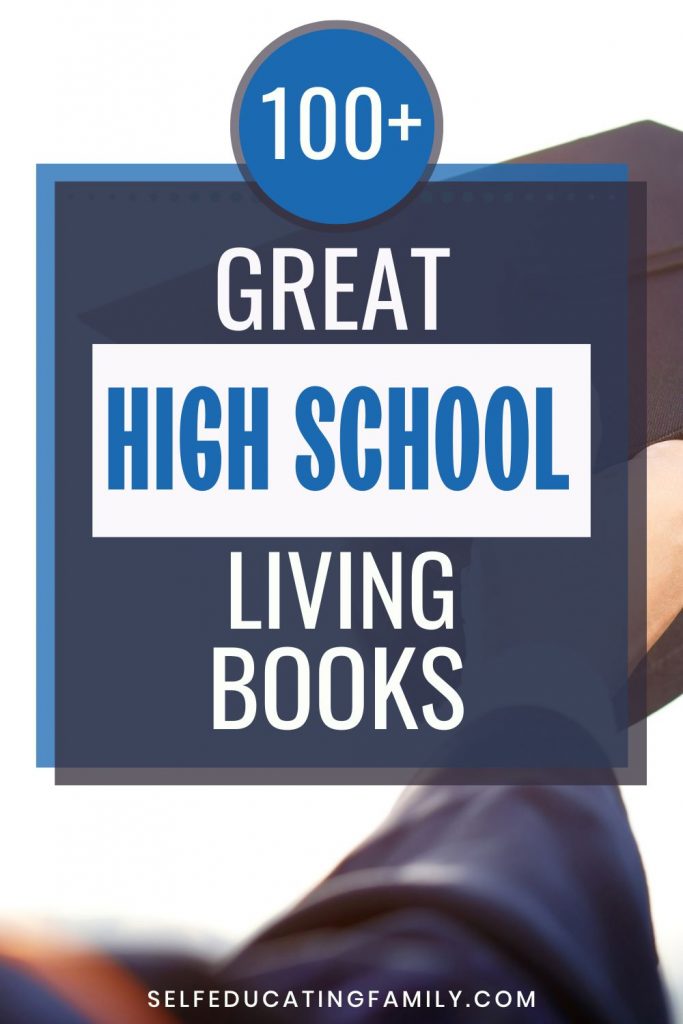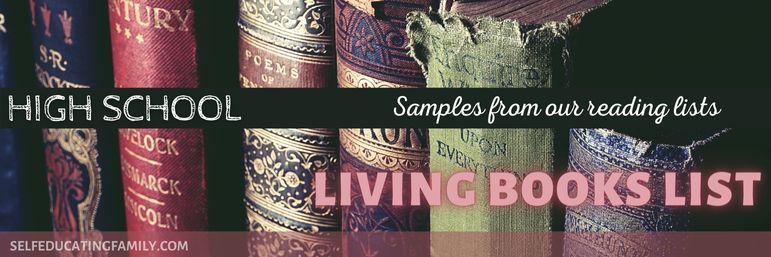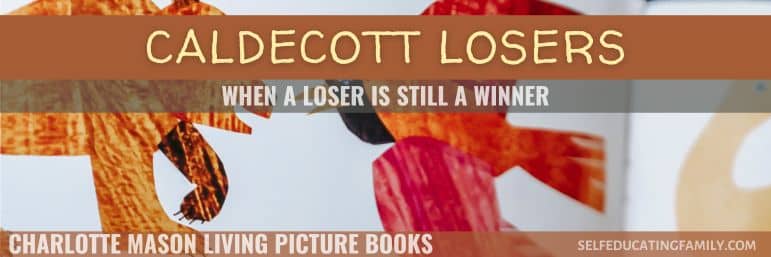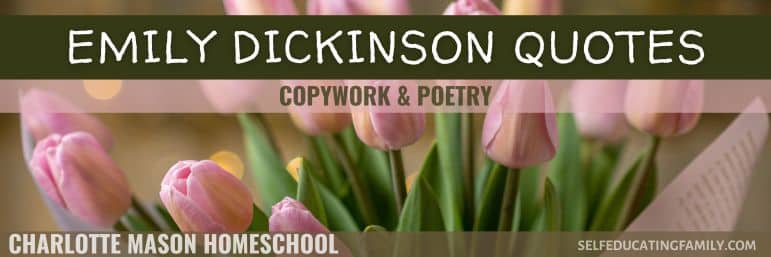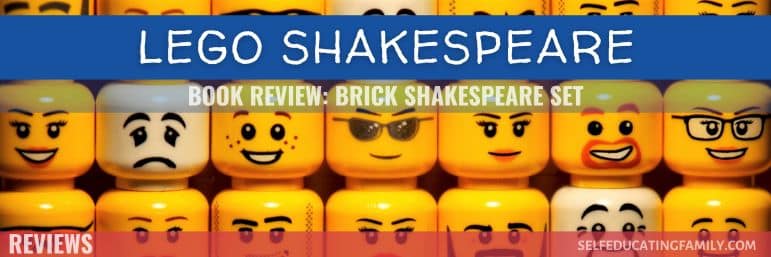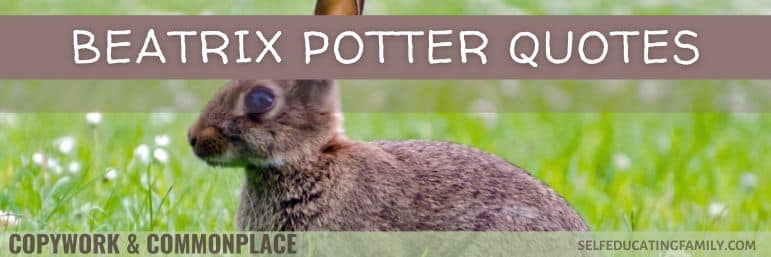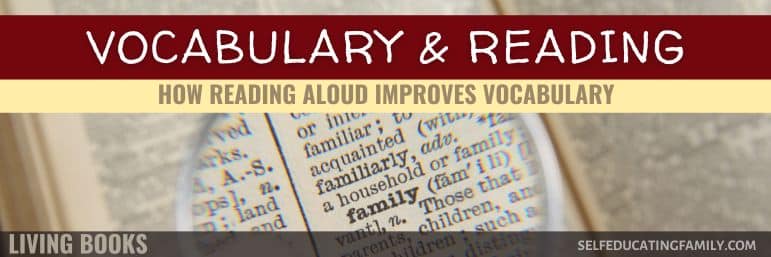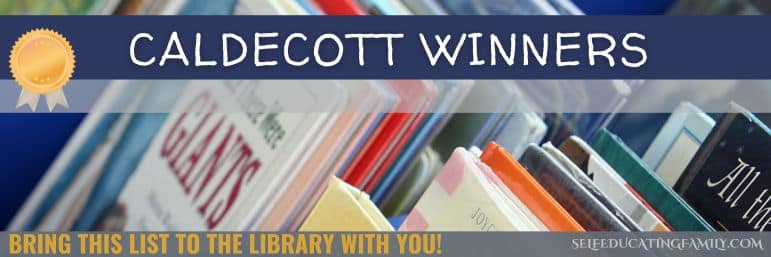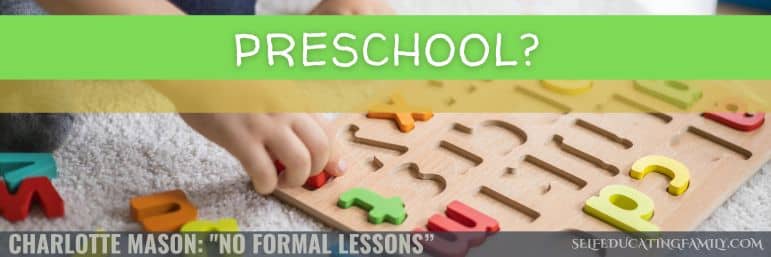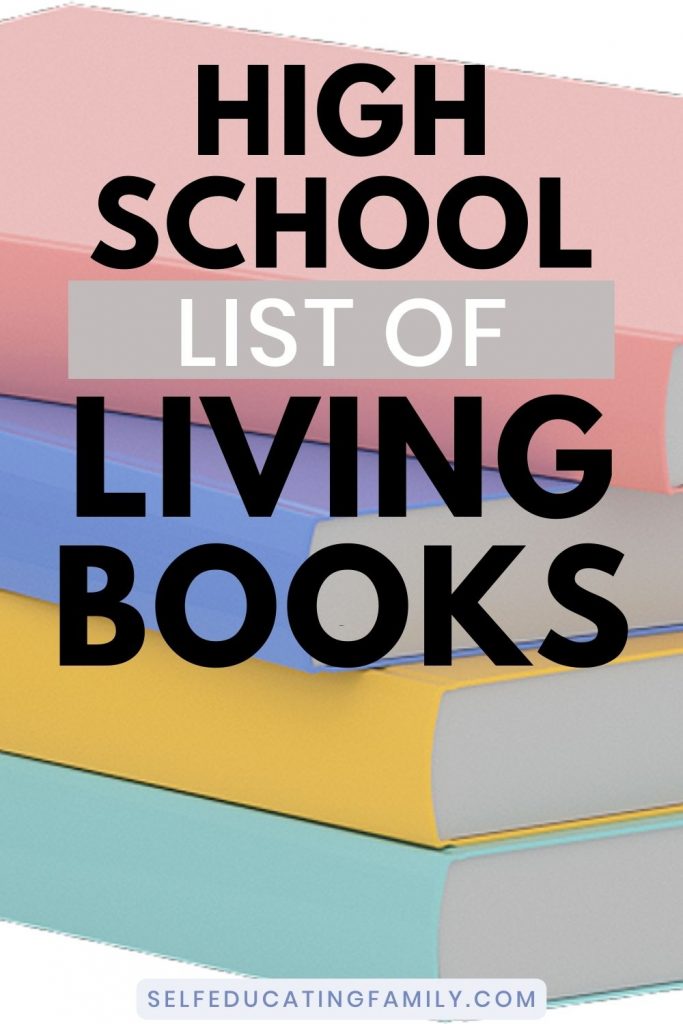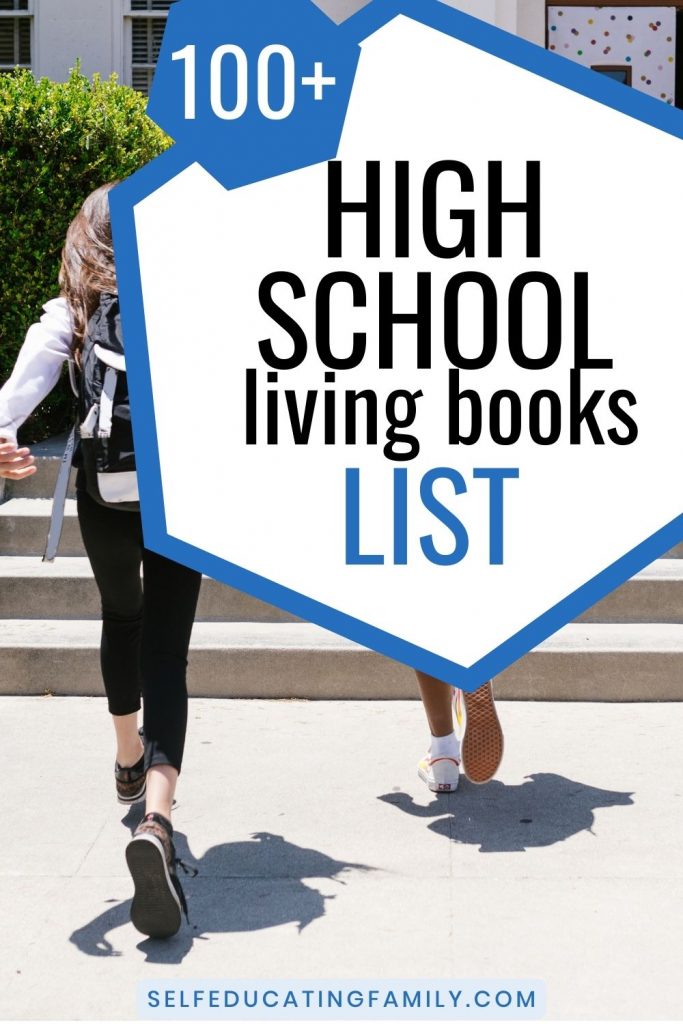What’s Inside: Living books engage the reader and bring the subject to life. These are books worth reading. This post lists the living books that my son read in high school. Are your kids learning to love books?
This post may contain affiliate links. If you find my content valuable and make a purchase through one of my links, I will earn a commission at no cost to you, which helps me keep this blog going so I can help you even more! I recommend products I trust and/or use myself, and all opinions I express are my own. Read the full disclaimer here.
Living Books List
This post shows the list of living books that my son read while in high school. (For living books for the younger crowd, see this post on living picture books and starting a home library.)
Living books engage the reader and bring the subject to life. While often fiction, the subjects can include history, science, math, geography, and biographies – really, any subject CAN be a living book. Then again, almost any subject can be a dull, tedious textbook too.
Keep track of your book lists
If you love to read, try some living books of a different genre than you are used to. If you are homeschooling, be sure to keep track of the books read in high school – it becomes important if your child is considering college for transcript purposes. Believe me, if you don’t write it down, you won’t remember it later!
Actual list of living books read in high school
What follows is my voracious reader’s list of living books that he read while in high school, grouped into genres. Remember: many of these are classic books which you can find free on Kindle.
* Disclosure: This post contains affiliate links, meaning that if you make a purchase after clicking through, SelfEducatingFamily will receive a small commission at no extra cost to you.
Biographies
My older sons took a class in 9th grade from the Ron Paul Curriculum which was called Classic Autobiographies. Many of the texts are available for free on Project Gutenburg. You can see our review of the Ron Paul Curriculum here.
Books
- 12 Years a Slave – Solomon Northup
- A Bus of My Own – Jim Lehrer
- My Life – Geronimo
- Narrative of the Life of Frederick Douglass – Frederick Douglass
- Plunkitt of Tammany Hall – George Washington Plunkitt
- The Autobiography of Benjamin Franklin
- The Autobiography of Mark Twain
- The Interesting Narrative of the Life of Olaudah Equiano, Or Gustavus Vassa, The African
- The Life of John Thompson, a Fugitive Slave: Containing His History of 25 Years in Bondage, and His Providential Escape
- The Persecutor – Sergei Kourdakov,
- The Story of My Life – Helen Keller
- Up From Slavery – Booker T. Washington
- Walden – Henry David Thoreau
Shakespeare
We use Charlotte Mason’s methods of homeschooling, so we studied between 2 and 4 Shakespeare plays per year. In addition, Shakespeare gets covered again in World Literature, so my son enjoyed a few bonus plays. Shakespeare is important to study for many reasons, including being able to use witticisms properly.
Shakespeare plays
For Shakespeare, we like to use the No Fear versions with modern English translations. Be careful though, since they will translate the bawdy parts which can be obscure in Shakespearean English, but are rather direct in modern English. We also have a Complete Works of Shakespeare on hand for the lesser available plays and other works.
- Hamlet
- Macbeth
- Romeo and Juliet
- 1st Henriad “Tetralogy”: Henry VI, Parts 1, 2 & 3 and Richard III
- 2nd “Tetralogy”: Richard II; Henry IV, Part 1; Henry IV, Part 2; and Henry V
- Much Ado About Nothing
- The Winter’s Tale
- Midsummer’s Night Dream
- The Taming of the Shrew
- Comedy of Errors
- Julius Caesar
By the way, we always enjoy watching these plays since they are, well… plays. When you get to the histories, you may want to try The Hollow Crown, a fantastic rendition of the tetralogy with superb performances. As always, preview for your family since there is much bloodshed in these histories.
Western Literature
We studied history and literature for the same time periods. It helps to reinforce the content. For instance, these were the classic literature books that my son read while studying Western Civilization.
Books
- The Iliad and Odyssey – Homer
- Oresteia – Aeschylus
- The Canterbury Tales – Geoffrey Chaucer
- Paradise Lost – John Milton
- The Faerie Queen – Spenser
- Doctor Faustus – Christopher Marlow
- Don Quixote – Miguel de Cervantes Saavedra
- Three Musketeers / The Count of Monte Cristo – Alexandre Dumas
- Frankenstein – Mary Wollstonecraft Shelly
- Pride and Prejudice – Jane Austen
- Robinson Crusoe – Daniel Defoe
- Tarzan of the Apes – Edgar Rice Burroughs
- Brave New World – Aldous Huxley
- 1984 / Animal Farm– George Orwell
- In the Penal Colony / Metamorphosis – Franz Kafka
- Lord of the Flies – William Golding
- Hunchback of Notre Dame – Victor Hugo
- Treasure Island / Dr. Jekyll and Mr.Hyde – Robert Louis Stevenson
- Gulliver’s Travels – Jonathan Swift
- All Quiet on the Western Front – Erich Maria Remarq
American Literature
So likewise, when studying American history, we read classic American authors.
- Adventures of Huckleberry Finn – Mark Twain
- Selected Tales – Edgar Allan Poe
- Call of the Wild – London, Jack
- The Great Gatsby – F. Scott Fitzgerald
- The Red Badge of Courage – Stephen Crane
- The Scarlet Letter – Nathaniel Hawthorne
- To Kill a Mockingbird – Harper Lee
- Grapes of Wrath – John Steinbeck
Other Genres
Since my son was an avid reader, he read a large number of other books during his high school years. I told him to keep a list, and he would narrate the stories of the ones he liked best. Please note, high school books sometimes have language and situations which may not be appropriate for your youngest readers. Always do what works for your family.
- Alexis de Tocqueville: On Democracy, Revolution and Society – edited by John Stone and Stephen Mennell
- And Then There Were None – Agatha Christie
- Atlas Shrugged – Ayn Rand
- Common Sense / The Rights of Man – Thomas Paine
- The Road to Serfdom – F. A. Hayek
- Fahrenheit 451 – Ray Bradbury
- How to Win Friends and Influence People – Dale Carnegie
- Lord of the Rings Trilogy – JRR Tolkien
- Origin of Species – Charles Darwin
- Slaughterhouse-Five – Kurt Vonnegut, Jr.
- The Art of War – Sun Tzu
- The Master and Margarita – Mikhail Bulgakov
- The Road / No Country for Old Men – Cormac McCarthy
- The Social Contract – Jean-Jacques Rousseau
Also (long) Excerpts
Some reading had to be shortened to keep up with the coursework. We filled out his reading list with very long excerpts to get a feel for the author and book or style if it was important to the era or genre, and if he wanted to finish the book later, that was up to him.
- Antigone & Oedipus Rex – Sophocles
- Beloved – Toni Morrison
- Brothers Karamazov – Fyodor Dostoevsky
- Candide – Voltaire
- Emily Dickinson (selected poems)
- Ethics – Aristotle
- Inferno – Dante
- Le Morte D’Arthur – Thomas Malory
- Leaves of Grass, selected poems – Walt Whitman
- The Arabian Nights
- Leviathan – Thomas Hobbes
- The Communist Manifesto – Karl Marx
- The Federalist Papers – Hamilton, et al.
- The Prince – Niccolo Machiavelli
- The Republic – Plato
- The Wealth of Nations – Adam Smith
- William Cullen Bryant (selected poems)
Other articles you may enjoy
Keep Learning:
Other resources about living books:
- Using living books in high school
- Another example of living books used in homeschooling
- Very comprehensive living books list for each age by Our Westward Journey
- Long list of living books for elementary
